On cracks as sites of possibility
A special guest post with Chel Viteri of Mazorca Facilitation
Dear beloved readers,
What cracks are you inhabiting these days? Where are you finding agency in these times? What parts of your life are calling you to grow an otherwise within them?
Continuing with last week’s theme of cultivating spaciousness in the cracks, today I am honored to share a guest post from my dear friend, collaborator, and co-conspirator Chel Viteri of Mazorca Facilitation. In this powerful essay, Chel shares the meaning of cracks in her own life and her experience of the US-Mexico border as a crack running not just through the land but through her, through us. As these borders crack ever wider through communities across the continent, how might we find other ways of resisting and relating within them?
You can join Chel, Zia Kandler, and me to explore these ideas and questions further in our workshop, Cultivating Spaciousness in the Cracks, on July 30th.
Please enjoy the gift that are these words. May they crack your heart open a little wider, and may they help reveal spaces of possibility in your own life.
With love and care,
Stephanie
Cracks
by Chel Viteri, Mazorca Facilitation
Cracks are not just signs of rupture or decay. They are openings, small, often overlooked spaces where new ways of being take root. As Catherine Walsh reminds us, it is in the cracks of dominant systems, in the fractures of structures built to extract, divide, and erase, that we can cultivate alternatives. In the midst of overwhelming violence and dehumanization, the crack becomes a site of possibility. A refusal. A quiet, insistent rebellion. These are the places where the logic of life interrupts the logic of death.
I think of cracks not as failures of the system, but as evidence that it can never fully hold, control or define us. No matter how airtight a structure may seem, it cannot contain what is unruly, relational, alive. A dandelion still breaks through concrete. A garden of mutual aid still blooms under capitalism. A moment of care still pierces through institutional cruelty. The crack is where we remember our agency. Where we root, reach, and relate otherwise.
One of the most powerful cracks I’ve ever witnessed is the US-Mexico border. It is a wound, yes. But also a place of extraordinary relationship. A militarized imposition meant to divide, but one that cannot fully contain the life that pulses through the desert, the communities, the memory of the land. The border both exposes harm and becomes a place where healing insists on happening anyway.
Each time I arrive in Douglas, Arizona, I feel it before I see it. The wall. A shiver moves through my body, a visceral sense of wrongness. The closer you get, the more layers emerge. Barbed wire, surveillance towers, the steady crawl of Border Patrol trucks. And yet, even here, life refuses to be silenced. Birds perch on the wall’s jagged edges. Pigeons nest in its steel crevices. Trees stretch across the divide. Rivers cut through both sides of what some try to make singular and separate.
At the checkpoint, there are faces; toddlers clinging to toys, abuelitas pulling carts, young men in work boots. A baby’s laugh floats into the tense air, and even a federal agent’s brow eases, just for a moment. These flashes of tenderness defy the grim choreography of control.
On the Agua Prieta-Mexico side, the wall becomes canvas. Murals bloom, monarch butterflies, portraits of dreamers, catrinas that smile in resistance. The wall, once meant to silence, is claimed by color and memory. There are crosses too, a reminder of the many who died trying to cross. Lives lost not to the desert itself, but to a policy of deterrence designed to turn the landscape into a weapon.
We were welcomed by Frontera de Cristo, a binational ministry grounded in justice, accompaniment, and love. Joca, a powerful and kind Presbyterian pastor from Mexico, greeted us with warmth and clarity. “This is a place where you can rest and trust your heart,” she said. Her words landed in me like water in dry soil. I felt the same shiver again. But this time it carried the ache and relief of being seen, being allowed to feel.
The border cracked me open. The contrast was relentless: the weight of the wall and the lightness of a child’s laughter. The violence of immigration policy and the tenderness of those who greet strangers as kin. The dryness of the desert and the life it holds in abundance. The mess of history and the clarity of those who choose to show up anyway.
And show up they do. Over and over, with fierce commitment to collective liberation, joy, and community. They cultivate cracks, gardens of resistance in the midst of suffocation. And they are not fazed. Their care is not naive. It is strategic, grounded, and utterly alive. In their presence, I am reminded that even when systems loom large and unmovable, we can always turn to the cracks to begin again.
The crack also exposes something within me too. It interrupts my comfort, my conditioning, the ease of going along with what harms. It makes me feel, and from that feeling, something shifts. My anger and grief stop being abstractions; they become movement. In the crack, I begin to remember the force of my own hands; what they can build, protect, tend, and dismantle. I begin to recognize my body, my voice, my relationships as sites of possibility. Liberation doesn’t start with grand gestures. It begins here, in the break, in the refusal to look away, in the practice of showing up. In the crack, I witness my community holding each other through impossible conditions. I see how we survive not just through resistance, but through deep care. And I realize that I am not separate from that. The crack is where I begin to live differently, where I become accountable to life, not just my own.
Dear reader, thank you for spending time with me and sitting with the cracks. Here are a few questions to nourish your own ponderings.
Where do you notice cracks in the systems or structures around you, (places where something tender, rebellious, or life-affirming persists despite harm)?
What do these cracks reveal to you?
What kind of agency might be possible there?
When have you felt a crack within yourself, an internal rupture that disrupted numbness, complacency, or disconnection?
What emotions or insights emerged through that crack?
How did it shift your sense of responsibility or belonging?
Who or what in your life has taught you how to survive, or even create, within the cracks?
What practices, relationships, or memories remind you that you are not alone?
Chel Viteri is a bilingual facilitator, educator, and community-based researcher with over a decade of experience facilitating participatory processes across Latin America and the United States. She specializes in popular education, decolonial methodologies, and creative approaches to political education, strategic planning, conflict transformation, and holistic security. She is co-founder of Mazorca Facilitation, supporting movement organizations and justice-centered groups to develop protocols, learning processes, and safety strategies grounded in community care and liberatory values.
Please join us on July 30th as we cultivate spaciousness in the cracks together and dive deeper into these questions and practices that can support us in our crack-inhabiting!





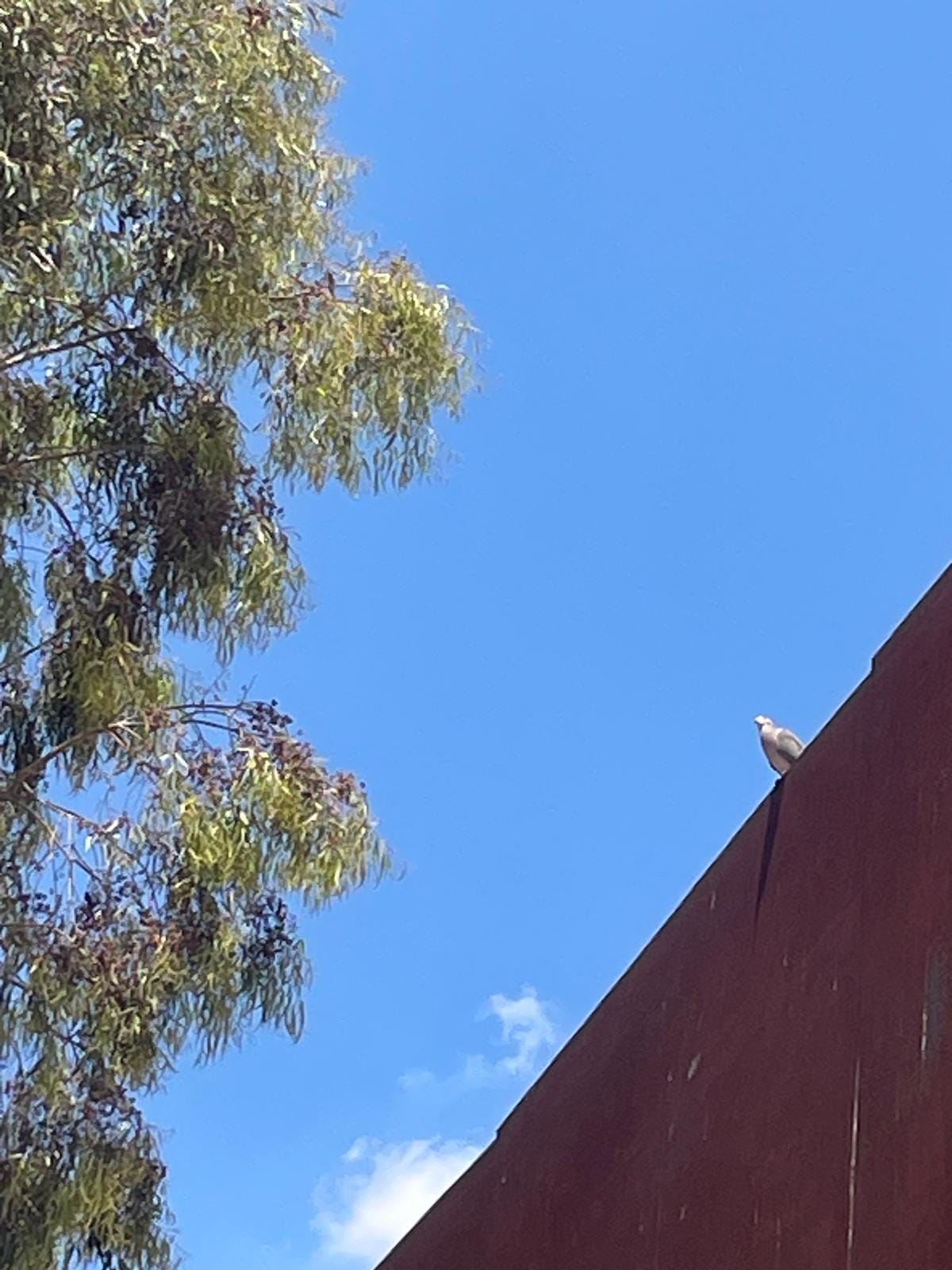
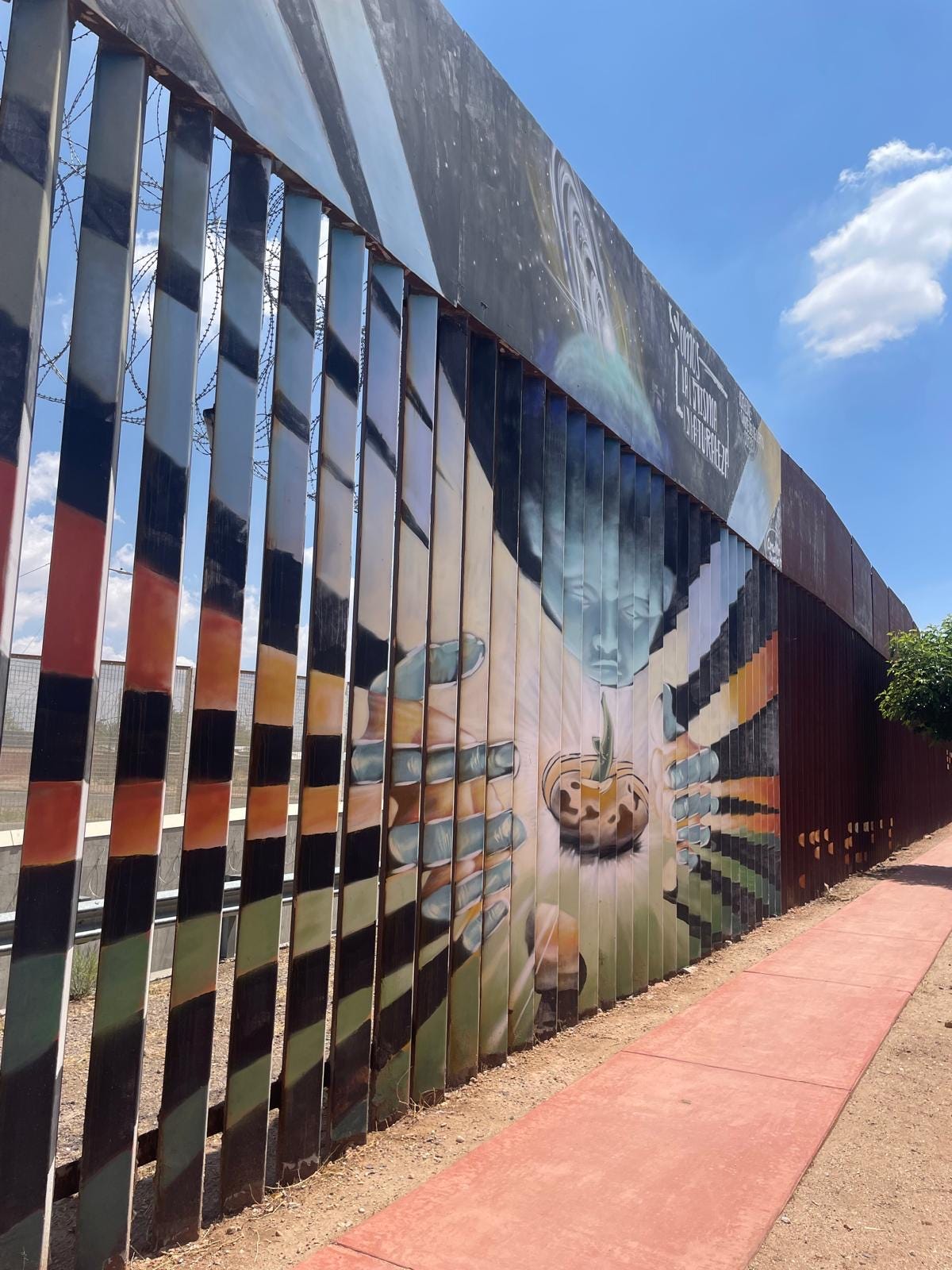
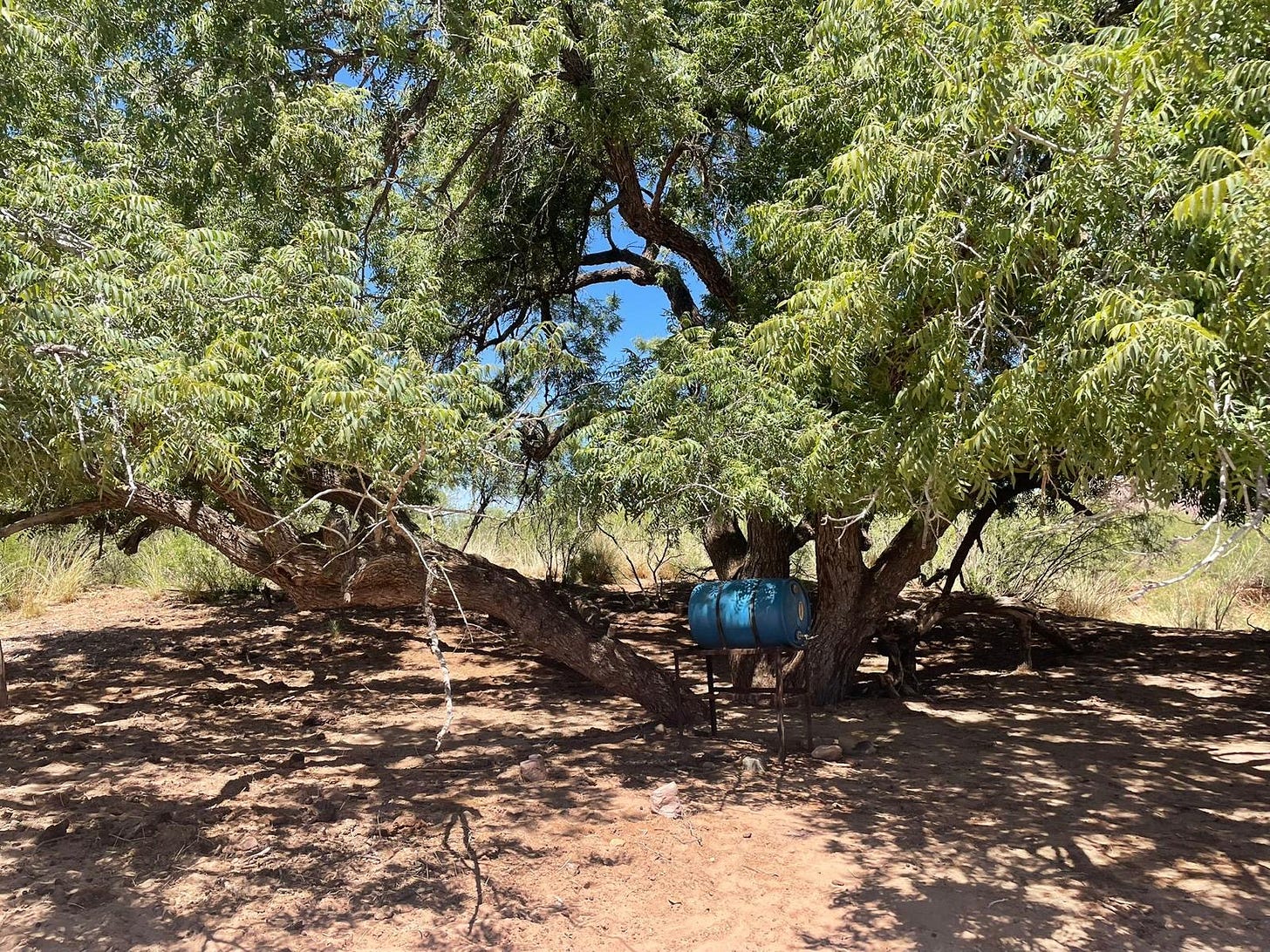
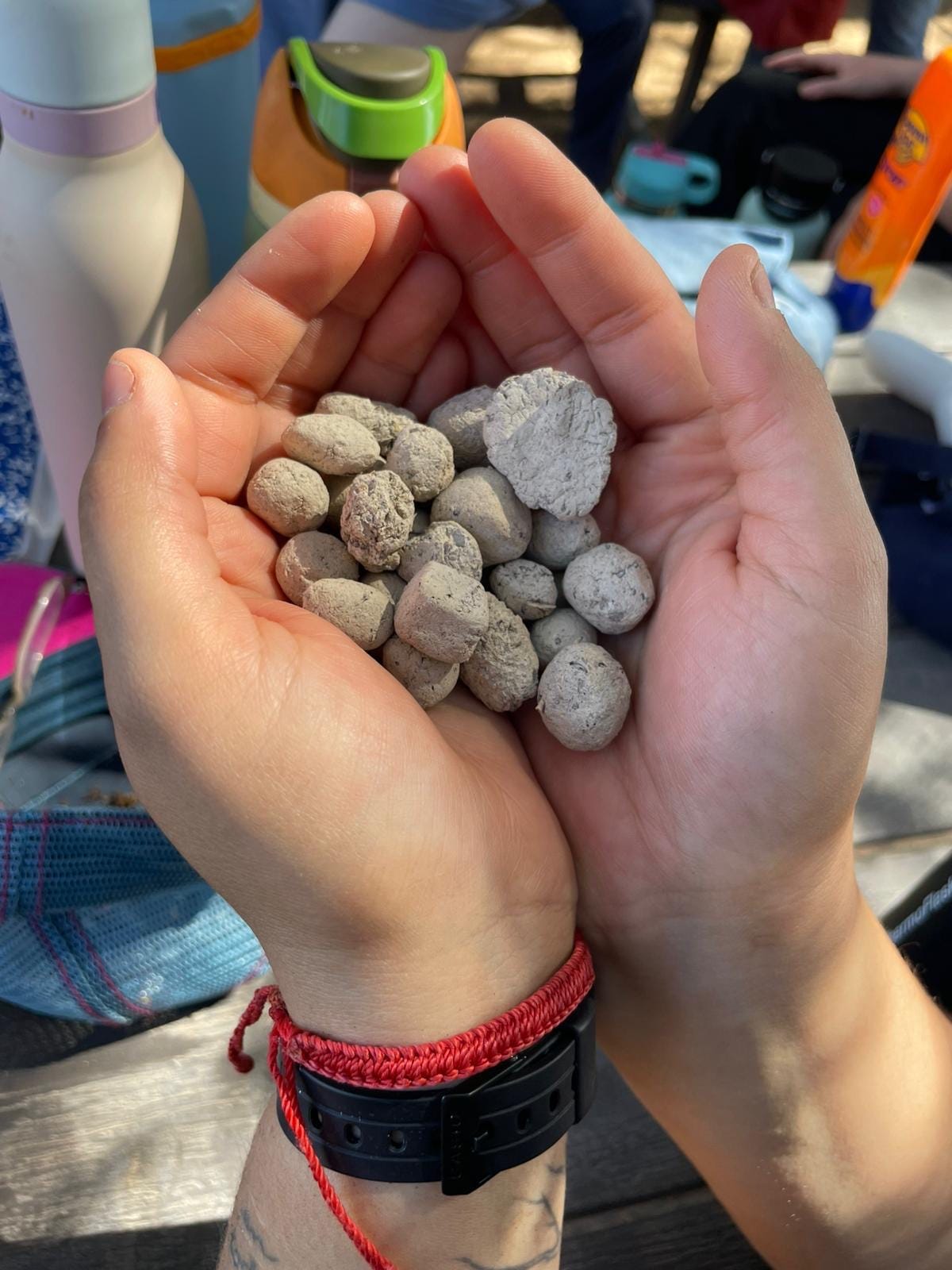
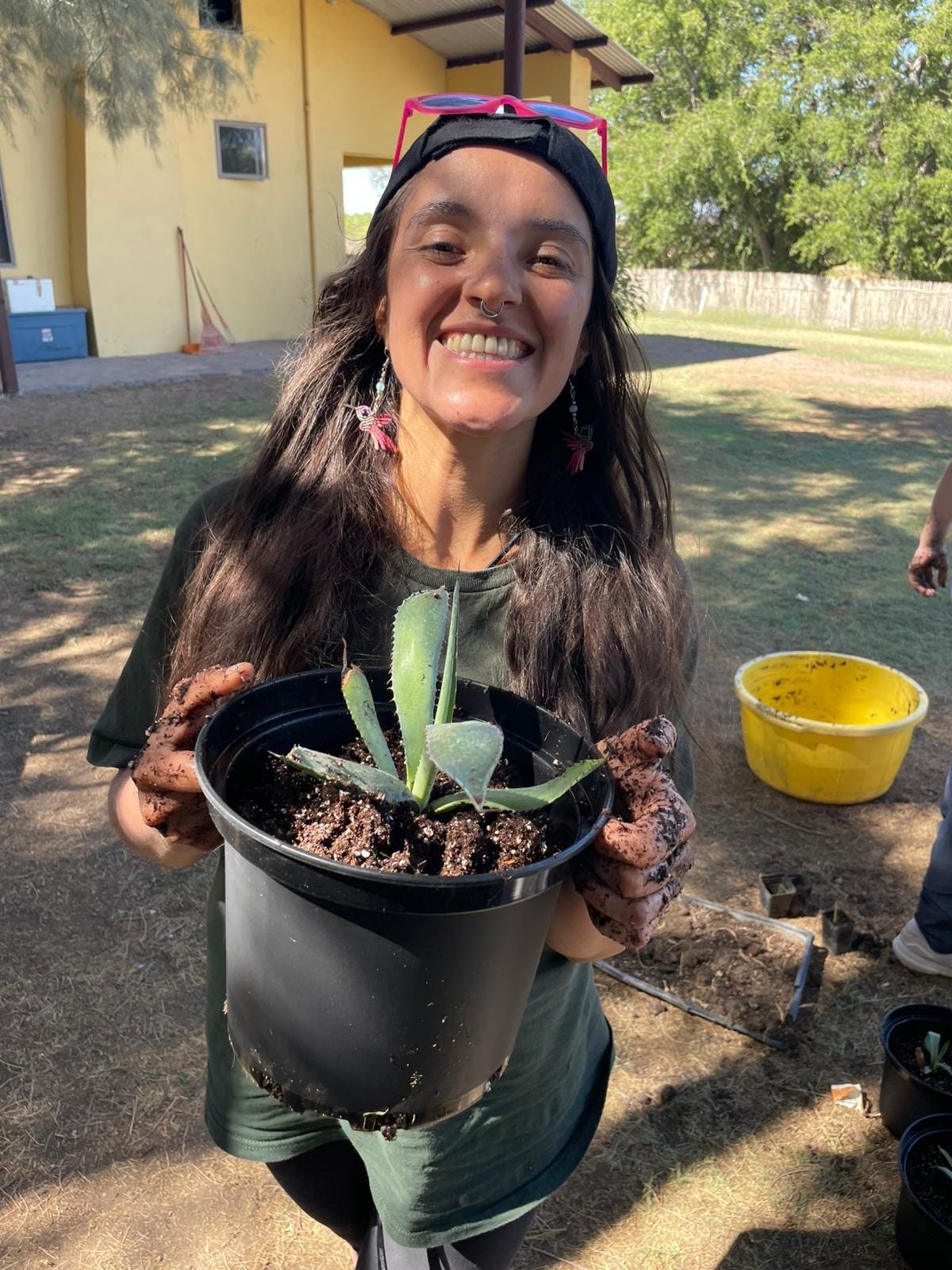
This morning, someone I gave a Tree Reading to yesterday sent pictures of the offering he made at the base of the tree we'd read through. Splashes of magenta against soil and root, flower petals given to the Oak King. It made me teary-- that despite everything, some of us are in real, not-insignificant ways growing closer to the gods of the land again. Although imperialism, empire, colonialism, and fascism have stamped out those who are close to the earth before-- though this relationship is no final protection from what they seek to do-- it does grow in us exactly the kind of bravery and space you are writing about. The sovereignty to know when it's time to act and how and to be able to.